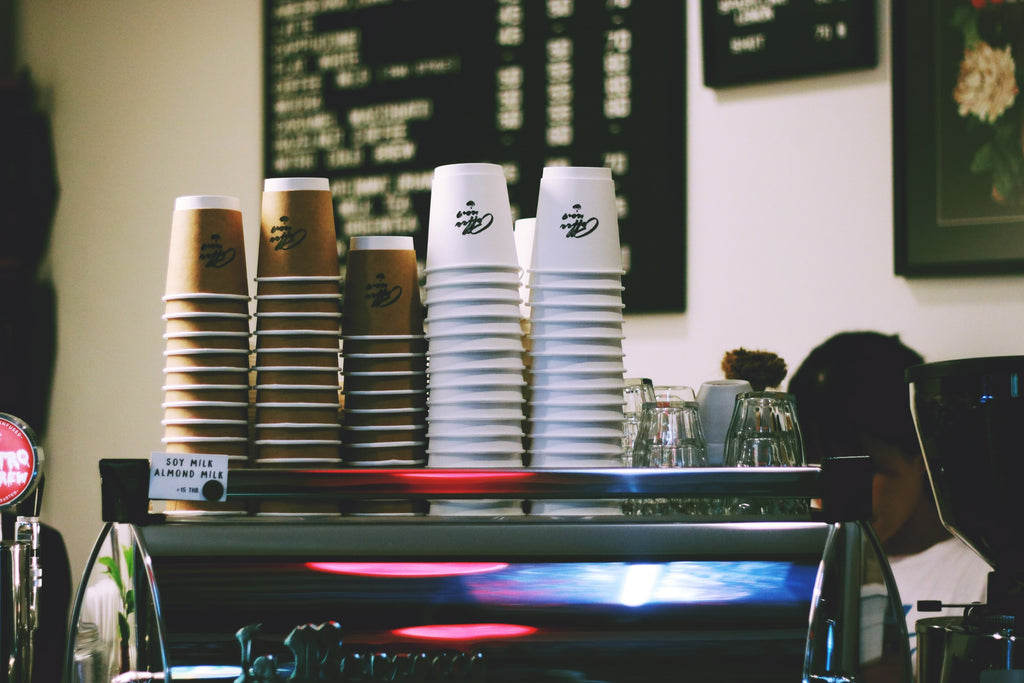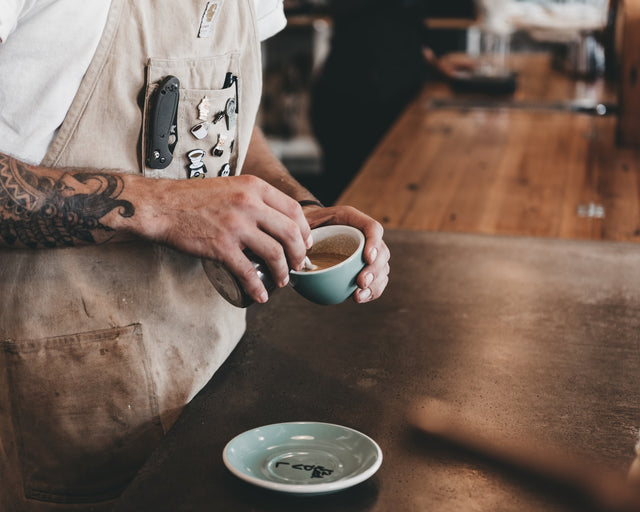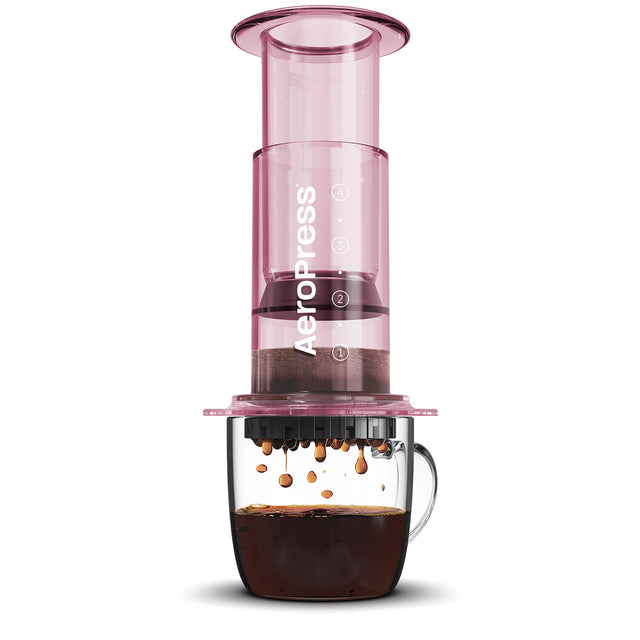8 Ways Coffee Shops Can Be More Eco-Friendly
In the UK, only 0.25% of disposable coffee cups are recycled, meaning that over 2.5 billion coffee cups go to landfill each year. This contributes to a growing environmental issue, which is only compounded by the broader impacts of the coffee industry – from deforestation to energy usage.
There are several ways you can make your home brewing more eco-friendly, but many coffee shops still rely on disposable items and unsustainable methods to create their coffee.
Whether you’re a small coffee shop owner looking for ways to make your business more environmentally-friendly, or a concerned coffee lover wanting to petition big brands and local coffee houses to implement more sustainable methods, we share some of the ways in which coffee shops can become more eco-friendly.

Choosing Better Beans
One of the biggest changes a coffee shop can make is to change the beans they use to brew. The typical coffee plant is sprayed with more chemicals than any product consumed by humans, and this has a negative impact on the environment.
Organic
Instead, opting for an organic coffee bean can make all the difference, as certified organic products are grown without harmful pesticides and fertilisers.
Shade-grown
Other important labelling to look out for when choosing coffee beans to serve includes shade-grown and Fair Trade. Shade-grown beans are planted and grown underneath the trees, allowing for the preservation of wooded areas, as opposed to deforesting expanses for coffee production.
Fair Trade
Fair Trade ensures that the coffee beans are grown in a way that promotes and aids both the community growing the beans and the environment in which it is grown.
Switching to beans with any one of these labels is a step in the right direction, although having triple-certified beans (organic, shade-grown and fair trade) is the ultimate goal.

Reducing Waste
Reducing the amount of waste we produce helps to reduce the impact on the environment. When it comes to coffee shops, there are many areas of waste that you may not even consider. Here we have identified some and how these could be fixed.
- Switching individual sugar sachets for refillable sugar jars.
- Replacing disposable stirrers for spoons.
- Using recyclable takeaway coffee cups or introducing incentives to promote reusable mugs.
- Composting leftover food and properly recycling other waste, including coffee grounds.
- Switch from plastic to paper or reusable straws.
Recyclable Coffee Cups
As we mentioned, 2.5 billion coffee cups go to landfill each year in the UK alone. Most single-use coffee cups cannot be recycled as the paper is coated with plastic, meaning it cannot biodegrade.
Switch to a takeaway coffee cup that is fully recyclable or biodegradable to help reduce the impact on the environment.

Promote Reusable
Promoting the use of reusable coffee cups is one of the best ways to help reduce waste. Many coffee shops have taken to selling their own reusable cups in-store, prompting coffee lovers to purchase one while queueing for their morning cuppa.
Some coffee shops have even taken it as far as to stop selling coffee in single-use cups altogether! That way, the coffee can only be taken away in a reusable cup – and if you forget, you’ll either have to forgo your coffee or sit in and drink at a table. We bet after one morning without coffee you’d never forget your cup again!
Provide Incentives
One way coffee shops have promoted the use of reusable coffee cups is through incentives. For example, many popular coffee chains now offer a slight discount on the price of your coffee if you bring in a reusable mug.
Reusing Grounds
Coffee grounds can be reused in a number of ways, but one of the best things for coffee shops to do is donate all the used grounds to nearby garden centres. The grounds can then be used as a natural plant fertiliser.
It is important that grounds are reused, as when they are sent to landfill sites, they release methane, which is harmful to the environment.
Go Local
Whether it’s milk from a local dairy or sweet treats from a budding baker in your community, there are plenty of ways in which you can switch to local produce. Not only does this help out fellow businesses in your local area, but choosing produce closer to home also has a positive impact, reducing your carbon footprint.

Saving Energy
Making coffee uses a lot of energy, especially if you use an espresso machine with no energy-saving features. Switching to a low energy espresso machine can make a big difference in the amount of energy used.
Changes in the shop can also be made, such as switching to more eco-friendly lightbulbs or a more efficient water heater.
You could also introduce more manually-brewed coffees, reducing the need for excessive power usage. For example, coffee could be brewed with an eco-friendly coffee maker like the AeroPress.
Reduce Dairy
Dairy-free milk alternatives, like soy, oat and nut milk, has a much lower carbon footprint than dairy. By introducing vegan options to your coffee shop, you’re not only allowing people who cannot drink dairy to enjoy your brews, but also doing more to help the environment.
We know that dairy-free milk isn’t for everyone, though! Instead, it may be time to start promoting black coffee. Often, milk is used to mask the fact that the coffee used is poor quality, and the brewing method isn’t quite right.
A good black coffee can taste infinitely better without milk, so try to convince some of your patrons to pick a milk-free brew! If you’re using good quality beans then their bound to choose it every time after.

Plastic Free Tea
While we’re all about coffee here, we can’t deny that tea remains the most popular drink in the UK. But did you know that almost 96% of tea bags are made using polypropylene, a plastic resin that is neither biodegradable nor recyclable?
If your coffee shop or café also serves tea, then it is important to consider the impact of this too. Plastic-free teabags, made from biodegradable materials, or loose-leaf tea are two options that can be turned to in an effort to reduce landfill waste.
Can you think of other ways in which coffee shops can become more sustainable? Reach out on social media and let us know, or leave a comment below!


0 Comments
There are no comments for this article. Be the first one to leave a message!